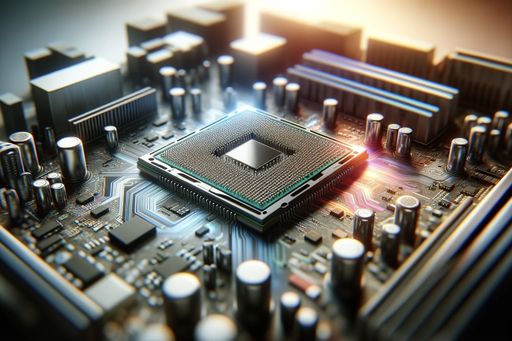Quantum Computing Decrypted: A Visual Guide to the End of Encryption
A comprehensive explanation of quantum computing and its impact on encryption.

The Threat to RSA Encryption
RSA encryption, which relies on the difficulty of factoring large numbers, has been the backbone of online security for decades. However, the emergence of quantum computers poses a significant threat to this encryption method. In 1994, mathematician Peter Shor demonstrated that a hypothetical quantum computer could easily break down large numbers into their prime factors, rendering RSA encryption ineffective.
Major global powers, including the United States and China, are currently racing to develop quantum computers capable of cracking encryption codes. This has become a top priority for national security agencies as they seek to prevent the unauthorized access to sensitive information. Quantum code-breaking has the potential to revolutionize not only encryption but also various scientific fields.
Understanding RSA Cryptography
To comprehend the potential impact of quantum computers on encryption, it is important to have a basic understanding of how RSA cryptography works. RSA encryption involves multiplying two large prime numbers to obtain a modulus. This modulus, along with its original prime factors, is used to create a private encryption key.
For example, if we take the number 35, its prime factors are 5 and 7. To solve this manually, we can imagine the number as individual blocks and arrange them into a perfect grid. The total number of rows in this grid represents one prime factor, while the total number of columns represents the other. Finding these prime factors manually is relatively simple for smaller numbers, but it becomes exponentially challenging for larger numbers.
The Power of Quantum Computing
Quantum computers operate at a fundamentally different level than classical computers. While classical computers use binary bits (0s and 1s) to process information, quantum computers use quantum bits, or qubits. Unlike classic bits, qubits can exist in a superposition of states, allowing them to represent multiple values simultaneously.
Through a process called interference, quantum computers can manipulate the probabilities of different qubit states, helping them select the correct answer among many possibilities. This unique ability of quantum computers makes them extremely powerful in solving complex computational problems, including breaking RSA encryption.
However, the development and implementation of reliable quantum computers capable of mass decryption still pose significant challenges. The first nation or research team to successfully achieve this milestone will gain unprecedented power and influence in the field of encryption and data security.



